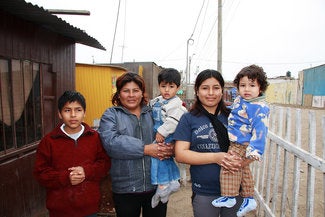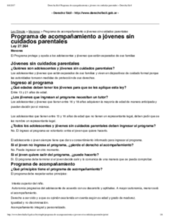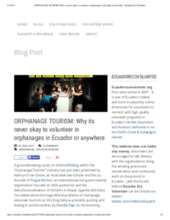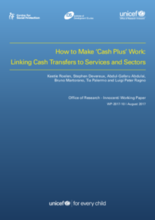

Displaying 191 - 200 of 332
Guided by an ideation-to-action theoretical framework for suicide prevention, the goal of the proposed research study is to describe and identify risk and protective factor correlates of youth suicidal behaviour among those at highest risk for suicide – orphans who reside in a low- and middle-income country (LMIC) institutional setting.
This chapter aims to discuss the methodological implications of research with children and adolescents who are living in foster care, with emphasis on the use of visual methods and reflexive interviews.
This chapter aims to present a research grounded in the bioecology of human development that analyzed shelter institutions through the perceptions of children aged from 7 to 12 years in Brazil.
Claudio Yanez tells his story about growing up without a family in Chile's public care system.
On 18 September 2017, the Sexual Violence Research Initiative will hold its 5th international conference, the SVRI Forum 2017.
Peru's Congress will debate a proposed law that would install "baby boxes" outside hospitals around the country, which would allow for infants to be abandoned safely and without consequence to the person abandoning the child; critics, however, argue that policy should be addressing the root causes of child abandonment and vulnerability, including family planning, education, and family strengthening programs.
Este recurso describe Ley 27.364 de Argentina, Programa de acompañamiento a jóvenes sin cuidados parentales.
This chapter from Child Maltreatment in Residential Care provides an overview of institutional care in Latin America and the Carribean, describes current efforts toward deinsitutionalization and child care reform in the region, and discusses practical suggestions for further research and reform.
This blog post from Ecuador Eco Volunteer describes the issues associated with orphanage volunteering and the reasons the company does not connect volunteers with orphanage placements.
This paper aims to identify key factors for successful implementation of increasingly popular ‘cash plus’ programmes, based on (i) a review of the emerging evidence base of ‘cash plus’ interventions and (ii) an examination of three case studies, namely, Chile Solidario in Chile, IN-SCT in Ethiopia and LEAP in Ghana.



